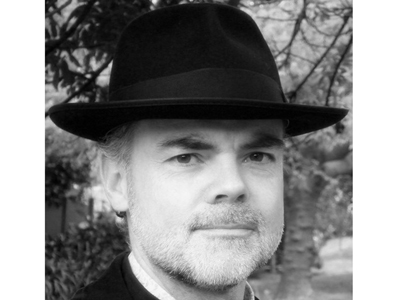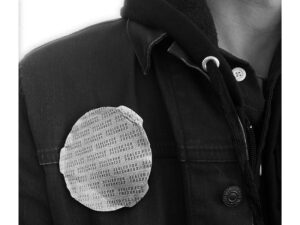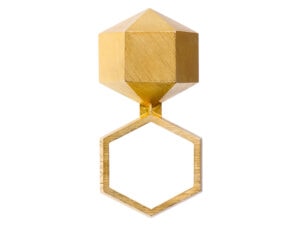What’s the best way of disseminating a political slogan today? Where once the badge was a common medium for rallying calls, it now seems to have been eclipsed by the hashtag. The political messages of the day are less often worn on the body and more frequently disseminated through social media with the use of Twitter or Instagram hashtags or Facebook likes. The hashtag has the advantage of being simple, quick, and enabling instant association with others using the same designation.
So, for instance, the hashtag #jesuischarlie came out almost instantly after the massacre of the Charlie Hebdo staff. The journalist Joachim Roncin tweeted an image of the phrase one hour after the event. Though he had only 400 followers, #jesuischarlie was soon retweeted seven million times. At the vigils that followed immediately after, there was not enough time to produce badges. Instead, people displayed this phrase as stickers on their clothing or A4 sheets they’d printed out at home.
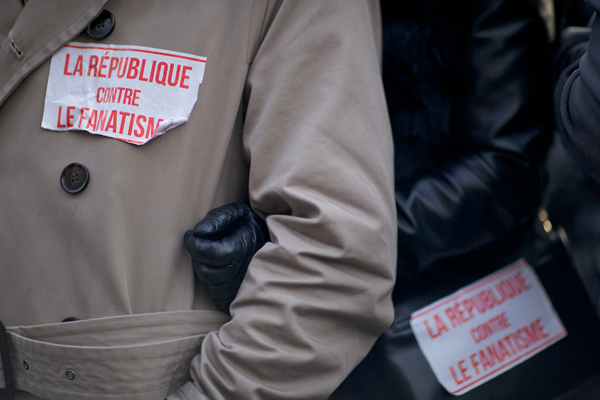
Four days later, George Clooney wore a badge to the Golden Globe awards. At the same event, Helen Mirren made a brooch out of a pencil, which had become the symbol of defiance in the face of terrorism. Then there was a flood of merchandising, including clutch bags and T-shirts. Google initially posted an image of a black ribbon to mark the occasion, but this was then replaced with an image of “Je suis Charlie.” The opportunity to create something like the AIDS ribbon was lost. Instead, there have been 50 attempts to patent the phrase.
The main sphere of action on the street was word play. Alternative permutations included “Je suis Nigeria” and “Je ne suis pas Charlie” from those protesting the magazine’s racism. The French comic Dieudonné was detained for saying “Je me sens Charlie Coulibaly,” [I feel I am Charlie Coulibaly] adding the name of the terrorist. In Melbourne, a member of Grandmothers for Refugees made a badge that said “Je suis asylum seeker.”
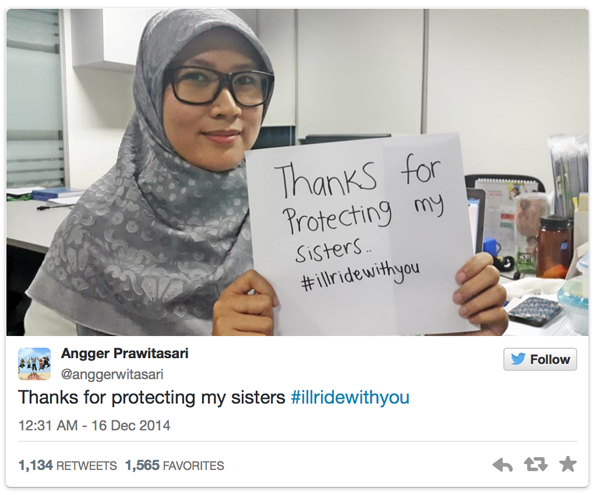
“I ran after her at the train station. I said ‘put it back on. I’ll walk with u.’ She started to cry and hugged me for about a minute – then walked off alone.”
@sirtessa picked this up and posted this tweet the next day: “If you [regularly] take the #373 bus b/w Coogee/MartinPl, wear religious attire & don’t feel safe alone: I’ll ride with you.” The follow-up tweet offered the hashtag #illridewithyou. Within a couple of days it featured in 120,000 tweets.
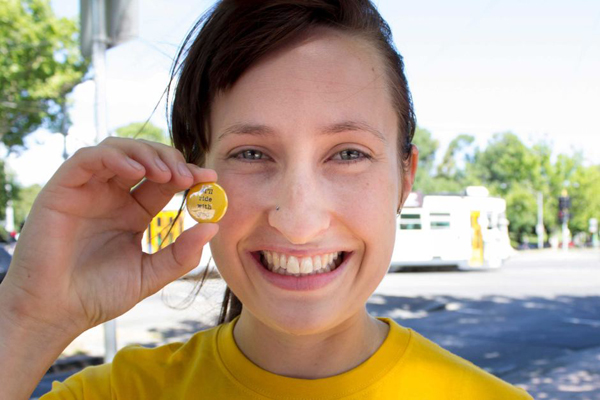
While this is a reassuring demonstration of support, it could go further. There’s almost no chance that the kind of women who might want or need that support would be able to locate a companion via Twitter on a specific train or bus at the correct time (one community representative also criticized it for presuming weakness among Muslims).
Soon some markers were improvised, such as stickers for commuters to attach to their bags. And then eventually the badge appeared. Stephanie Speirs produced 1,000 yellow badges that she distributed for free outside the main Melbourne train station. There have been no reports of its effectiveness, but at least it produces the possibility of individual responsibility. Vicki Mason’s project Broaching Change shows how ornament can be combined with a website to build longer-term connections.
Rather than become extinct, the badge seems to have evolved alongside the hashtag. It is no longer the default means of identification with a political cause. But combined with a well-developed platform, it has the capacity to create tangible forms of political solidarity.
The badge is dead. Long live the #badge.
